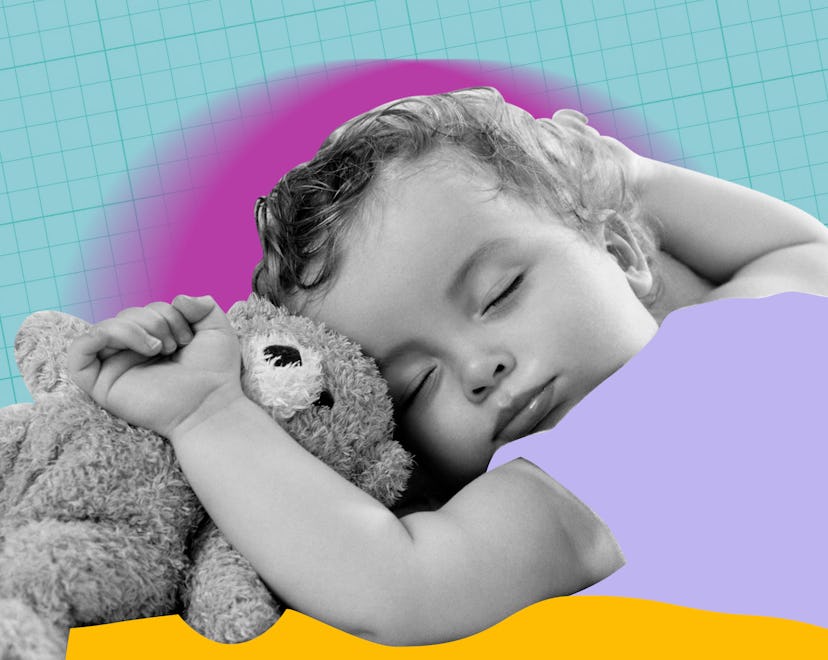Parenting

Do Babies With RSV Sleep Longer? It’s All About Keeping Them Comfortable
“When you’re sick, rest is best” isn’t just a Daniel Tiger lyric.
“When you’re sick, rest is best” isn’t just a sweet Daniel Tiger lyric. As a certified overly-anxious mom, it’s also what I have to remind myself whenever my 4-year-old comes down with something and I start to worry that he’s been conked out too long. Against my better instincts, I’ve been known to consider waking him, even when it’s obvious his body is getting much-needed rest.
With sleep and respiratory syncytial virus (RSV), it can be hard to know what’s normal, and when to worry. To get some answers (and calm my own nerves), I chatted with Dana E. Sanderson, M.D., a pediatrician who practices in the Bronx. She started by offering some assurance. “If you have a child with RSV who is able to sleep, that’s great! Let them sleep,” she says. She went on to offer valuable insights.
Encouraging quality sleep
According to Sanderson, RSV affects kids differently and can range from a mild sickness that presents as a runny nose or sore throat to a severe one that can lead to trouble breathing. One thing most kids with RSV have in common, though? Interrupted sleep from coughing, congestion, and generally feeling lousy.
To help kids feel better and be able to rest, make sure that they are drinking fluids and staying hydrated, and note that they’re urinating as a sign that they’re getting enough hydration. If you have a sick baby, this may mean offering more frequent breast milk or formula feedings. Sanderson also recommends using saline drops and then gently suctioning your kiddo’s nostrils with a suction bulb, as well as using a cool mist humidifier in their bedroom to alleviate congestion. She recommends using Tylenol to control any fevers, too (or Motrin if a child is over 6 months old).
Changing position
If you have an infant, you may be wondering if there’s any way you can alter their sleep environment to help them feel better. Unfortunately, Sanderson is clear that even with RSV, infants still should be placed to sleep alone on a firm, flat surface, on their backs (no incline, and no blankets). However, if extra pillows help a toddler to feel more comfortable, it is fine to offer them.
What to look out for
If you’re able to get your little one comfy enough that they can sleep, Sanderson says not to fight it — but she does recommend keeping an eye on them. “If a child is sleeping much longer than normal, you want to reassess them,” she said. I pressed her to define “normal,” hoping for a simple formula of number of hours slept equals cause for concern, but she says it really depends. “If your kid generally sleeps from 7 p.m. to 8 a.m., and sleeps an extra hour when they have RSV, that’s not as concerning as a kid who never sleeps well and then suddenly sleeps 12 or 14 hours.” She said it’s more about looking at the whole picture — including how your child is behaving when awake. If they wake up super energetic and are eating and breathing well, then there is likely not a reason to worry.
If your child is sleeping much longer than they usually do, reassess them by monitoring their breathing; and if they are having difficulty or breathing quickly, they should be brought to the emergency room. You should also see a doctor right away if your child is unable to be woken or has a notable change in activity level, especially if they also have a fever (defined as a temperature of 100.4 or above).
When to call your doctor
“If your child is awake and alert during the day, drinking and urinating well, and breathing comfortably, then continue to monitor at home,” says Sanderson. She recommends that kids over 2 years old who have a fever for more than three days be checked by their pediatrician to ensure that there are no other infections that might need treatment (babies under 3 months should be brought in for a fever right away, and kids under 2 should see their doctor if their fever lasts more than 24 hours). And, as noted previously, if a child is having trouble breathing, they should be brought straight to the ER.
Sanderson ended our phone call with the wisdom I really needed and didn’t realize I was craving: “I just want to say hang in there!” She knows how exhausting it can be to take care of a child, especially a very young one, who has RSV. “Just remember that the symptoms will eventually resolve and you and your child will get back to sleeping more soundly.” Amen to that.